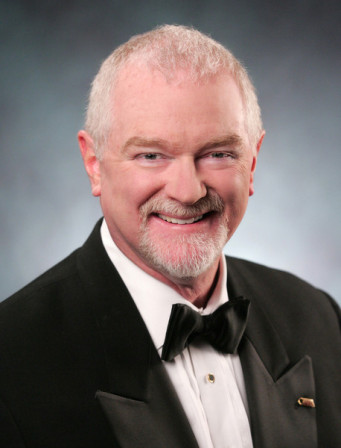Ian Campbell at the Opera
“The opera ain’t over until the fat lady sings.” Regardless of whether these words were first spoken in the 1970s by Ralph Carpenter or Dan Cook noting that a sports season or game was not yet over, they have stuck in our collective memories, joining the many cartoons, jokes and movies – the unforgettable Marx Brothers’ “A Night at the Opera” being perhaps the best – in lampooning opera and opera singers.
After 46 years as an opera singer, stage director and administrator, I confess I still wince a little when I hear the phrase yet again. Actually, I think it quite funny, but it is so out of date it shows that the person who says it probably has not attended an opera performance in the last 40 years, if at all.
The majority of opera singers on stage today would never fit the “fat lady” costume, and many are actually extremely attractive women or, in the case of men, “hunks.” Most have figures we would consider quite average. What happened? It’s simple; fat makes no sound and is unhealthy for an opera singer. It took a couple of hundred years to work it out, but most finally have. They go to the gym to exercise, and they watch their diets because eating and drinking to excess is a constant danger in their world.
Opera singers seldom eat a significant meal before a performance because a full stomach can seriously affect breathing. Think of how you feel after a generous Thanksgiving dinner. Projecting the voice into a 3,000-seat theatre without amplification, and singing long phrases – not the chopped-up amplified phrases of a pop singer or Broadway performer – is technically and physically demanding. Anything which inhibits the ability to inhale deeply and support the emission of sound can be disastrous. And when she goes on stage, the soprano may be dressed in heavily brocaded period costumes which weigh many pounds and cause her to sweat excessively during the performance.
The result is that by the end of the performance a singer is exhausted, hungry, dehydrated, and has a backache. Eating and drinking is essential, and it’s frequently late at night, not the best time to indulge if weight control is an issue. Following that pattern for years without exercise helps create the “fat lady” or “fat gentleman” as we all know from following the career of the tenor, Luciano Pavarotti, who was an attractive, strongly built young singer, but became a classic operatic caricature to many. Even he said he enjoyed food after a performance too much.
As I said, most singers today take care of their bodies knowing that appearance is important and that they sing and act better when they are fitter. Sometimes the type of voice needed for certain roles comes in a larger package, but the singer is hired because the voice is what opera is about. Casting begins with voice, not figure, and if the most attractive body has an inferior voice or an unsuitable voice, that singer will not be hired. Voice comes first.
Come to San Diego Opera’s 2013 season and you’ll discover wonderful singing actors and actresses who are just like you. And the opera will not be over when the fat lady sings. It will be over only after you have been excited, entertained, amazed and moved by the great combination of singing, orchestral music, dance, visual art and literature which is opera.
Some people will tell you that opera is not for just anybody. But you’re not just anybody.
I’ll see you at the opera,
IAN
Category: Entertainment, Local News








